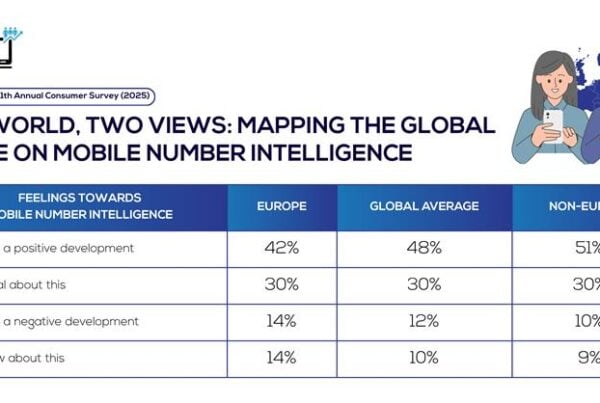MEF’s Riccardo Amati takes a look at the Philippines’ new Konektadong Pinoy Act, a landmark reform reshaping the nation’s telecom sector.
The Konektadong Pinoy Act ignites a telecom shake-up in the archipelago, opening the market to startups and new entrants while encouraging infrastructure-sharing innovation. It promises faster internet, lower prices, and a blueprint for global mobile growth. “This new law is an important step toward a more inclusive, competitive mobile ecosystem that delivers broader coverage and better services for millions of Filipinos,” MEF’s Matt Ekram says.

It’s not just a name, it’s a mission. Konektadong Pinoy, as the law is popularly known, means “connected Filipino” and is designed to connect millions to faster, more reliable internet while shaking up a market long dominated by a handful of telecom giants. Officially called the Open Access in Data Transmission Act, the new policy eliminates the need for Internet Service Providers (ISPs) to secure a legislative franchise or a Certificate of Public Convenience and Necessity—barriers that for decades stifled competition and slowed innovation. Now, smaller operators can enter, share infrastructure, and expand coverage.
Finally in Motion
“The Konektadong Pinoy Act is a landmark reform for the Philippines’ digital economy,” said Matt Ekram of the Mobile Ecosystem Forum (MEF). “By lowering barriers to entry and encouraging infrastructure sharing, the law empowers smaller providers to contribute to connectivity and innovation.” The market was ready for this moment. According to reports by GlobalData and Telecom Review Asia, mobile services revenue in the Philippines is projected to grow from USD 4 billion in 2024 to over USD 5 billion by 2029, while average monthly mobile data consumption is expected to rise sharply from 8.7GB to around 17.7GB, reflecting surging demand for video streaming, social media, and other high-bandwidth applications. Prices could fall, networks could expand faster, and globally, the law offers a clear lesson: cutting red tape sparks competition and accelerates digital inclusion.
The Konektadong Pinoy Law is a game-changer. It removes franchise barriers, mandates infrastructure sharing, and opens the market to new operators.“
The Philippine telecom market as a whole is currently valued at about USD 5.58 billion and is expected to reach USD 6.55 billion by 2029, reflecting a CAGR of 3.28% driven by 4G and 5G adoption, fiber rollout, and growing data demand, a study by Mordor Intelligence projects. Philippine Long Distance Telephone Company (PLDT)-Smart, Globe Telecom, and DITO Telecommunity together control roughly 85% of active SIM subscriptions, keeping the sector tightly held.
These incumbents have invested heavily in 5G rollouts, fiber networks, and satellite partnerships. Globe’s 5G coverage reached nearly 99% of Metro Manila and over 97% of major cities in Visayas and Mindanao by early 2025, while DITO deployed more than 30,000 km of fiber and built 5,500 mobile towers to connect over 600 cities and municipalities. Despite these investments, coverage gaps remain, especially in rural provinces like Batanes, Mindoro, and Camiguin.
New Blood, New Bandwidth
Now, regional ISPs, mobile virtual network operators, and tech startups have the green light to compete.The fixed broadband and satellite internet service provider InfiniVAN, for instance, has partnered with SKY Perfect JSAT Corp. to deliver satellite broadband to remote islands, while smaller fiber operators can now leverage mandated infrastructure sharing to scale rapidly. New entrants can offer flexible mobile data packages, Internet of Things (IoT) solutions for smart agriculture, and Over The Top (OTT) partnerships. Infrastructure sharing ensures they won’t need to rebuild networks from scratch, lowering barriers to entry and accelerating deployment.
Incumbents have voiced concerns. PLDT warned that unvetted new entrants could access critical network assets before completing full cybersecurity vetting, potentially risking national security. They also argued that removing franchise requirements could erode the value of past investments.
“While established operators’ concerns must be carefully managed,” MEF’s Matt Ekram notes, “this new law is an important step toward a more inclusive, competitive mobile ecosystem that delivers broader coverage and better services for millions of Filipinos.” Balancing competition and security will be central as the Department of Information and Communications Technology (DICT) finalizes the Implementing Rules and Regulations.
Connected for Good
For consumers, the law could be transformative. Competition will push prices down while expanding network reach. Fixed broadband penetration is set to grow as urban fiber deployment accelerates, and mobile data adoption will continue its rapid climb. Mobile services revenue is increasingly driven by data services, which already account for over 53% of operator revenue. IoT and machine-to-machine connectivity are expanding at a 4.34% Compound Annual Growth Rate (CAGR), fueled by smart-city projects and agricultural applications.
Rural communities stand to gain the most. Reliable high-speed internet will reach schools, hospitals, and small businesses in previously underserved provinces. Urban users will benefit from flexible data plans, OTT partnerships, and faster mobile connections. Globe’s GoWiFi initiative already spans 3,700 public locations, including government offices, airports, hospitals, and schools, demonstrating the scale of potential service expansion. DITO’s annual investment of around USD 1 billion in network expansion underscores the growth trajectory of the market.
Edge of Opportunity
For incumbents, the message is clear: adapt or risk losing market share. Network-sharing mandates will require them to open parts of their infrastructure to competitors, which could impact pricing power but also expand market reach indirectly.
For smaller operators and startups, the market is ripe for innovation. Niche offerings such as low-latency IoT connectivity, smart agriculture solutions, or data-driven OTT services can capture underserved populations quickly. Investors will find opportunities across data services, 5G infrastructure, and fiber-optic deployments, especially as demand for high-bandwidth applications like video streaming continues to surge.
Policymakers should focus on ensuring cybersecurity standards are enforced consistently and foreign-controlled entities are carefully vetted. Clear, enforceable rules will give new entrants confidence to invest while protecting consumers. The ongoing Implementing Rules and Regulations (IRR) consultations led by DICT will be critical in balancing security, competition, and innovation.
From Manila to Mobile Markets (and Beyond)
The Philippine experience offers a blueprint for the global telecom industry. Deregulation paired with infrastructure sharing can rapidly expand access, foster innovation, and stimulate competition.
Startups can thrive in high-capital markets when regulations are designed to encourage participation, while incumbents must evolve to maintain market relevance. Investors gain a growing market with predictable returns driven by data services, OTT adoption, and 5G and IoT expansion. For governments, the lesson is straightforward: thoughtful regulatory reform can deliver tangible social and economic benefits faster than technology alone.
The Konektadong Pinoy Law is a game-changer. It removes franchise barriers, mandates infrastructure sharing, and opens the market to new operators. The payoff is clear: wider coverage, lower costs, and accelerated deployment of 5G and fiber networks. Millions of Filipinos stand to gain affordable, high-speed internet, improved mobile services, and innovative digital experiences. Startups gain a fertile environment for innovation. Investors gain opportunities in a fast-growing market. Incumbents are forced to compete and innovate. From Manila to the world: the Philippines shows how smart laws can ‘Connect Filipinos,’ rapidly transforming telecom and paving the way for a globally connected, inclusive digital economy.





